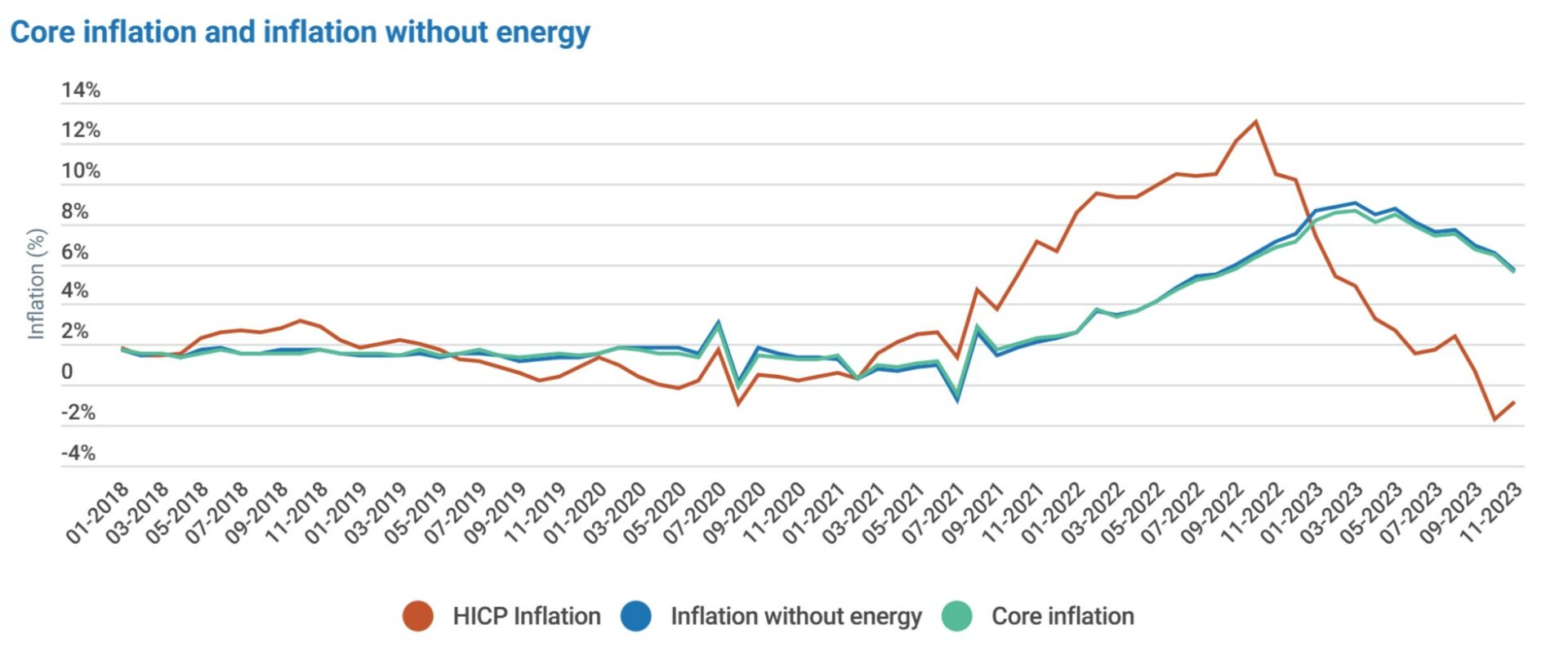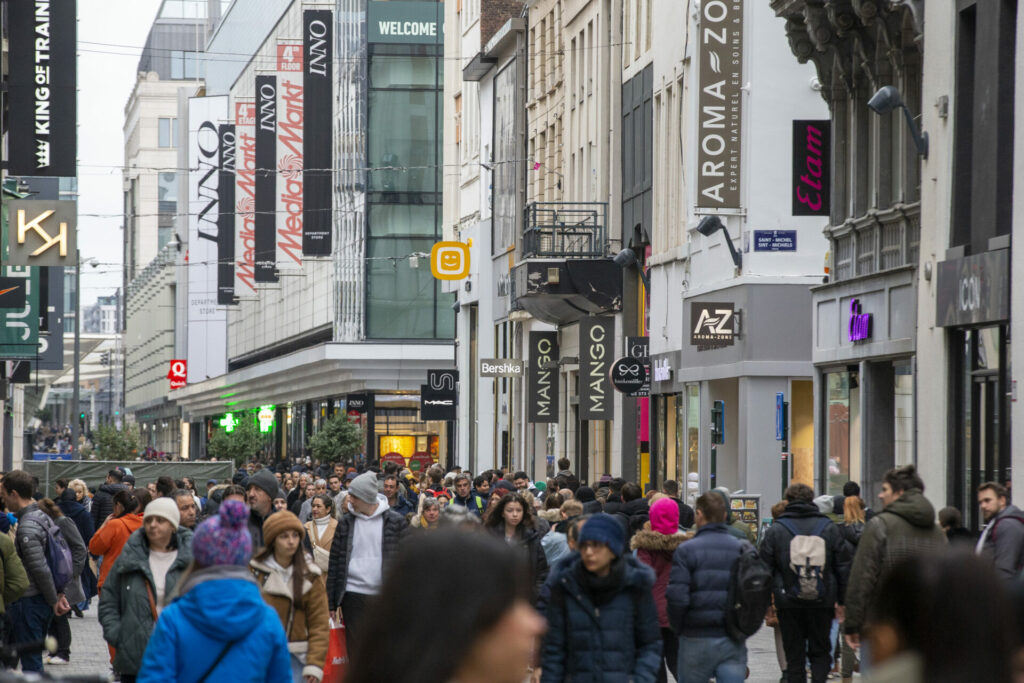Inflation in Belgium rose by almost a whole percentage point in November but remained in negative territory, according to a recent report by Statbel, Belgium's official statistics office.
The study found that Belgium's annual headline rate as measured by the Harmonised Index of Consumer Prices (HICP) – the EU's preferred inflation index – rose to -0.8% last month, up from October's record low of -1.7%.
The latest uptick represents the first time that inflation has increased since August this year. However, the current rate remains well below the 13% peak reached in October 2022.

Credit: Statbel
The study also noted that food and non-alcoholic beverages had the largest upward inflationary effect, with both contributing a combined total of 1.6 percentage points to the headline rate. This is in spite of the fact that food inflation actually declined from 9.2% to 7.9% from October to November.
By contrast, energy had the largest negative inflationary impact, with gas and electricity now contributing -3.34 and -2.20 to the headline rate, respectively. Electricity and gas prices are currently 42.1% and 71.2% cheaper respectively compared to this time last year.
Core inflation, which strips out energy and volative food prices, registered a steep decrease, falling from 6.4% to 5.6%. Core inflation has fallen fairly steadily since peaking at 8.6% in March this year.
'Inflation has eased further'
Despite currently lingering in negative territory, Belgium's headline rate is set to rise to 4.2% next year before dropping to 1.9% in 2025, according to the European Commission's most recent forecast.
At its latest meeting on Thursday, the European Central Bank (ECB), which hiked its benchmark deposit facility rate to a record high of 4% earlier this year, kept its current interest rates unchanged. It also cut its inflation forecast for the eurozone for 2023 and 2024 by 0.2 and 0.5 percentage points respectively.
"Underlying inflation has eased further," ECB President Christine Lagarde said at a press conference announcing the bank's decision yesterday.
Lagarde also praised the ECB's role in bringing the eurozone's inflation rate down from its peak at 10.6% in October 2022 to just 2.9% in the same month this year – less than a percentage point above the bank's 2% target rate.
Related News
- Eurozone: ECB extends its interest rate pause
- 'The system is broken': Trade union chief urges EU leaders to address growing social crisis
"Our past interest rate increases continue to be transmitted forcefully to the economy," she said. "Tighter financing conditions are dampening demand, and this is helping to push down inflation."
Statbel's latest report follows another recent study by the same agency, which found that Belgium's inflation rate grew from 0.36% in October to 0.76% in November. However, this inflation rate was calculated using the Consumer Price Index (CPI): a different index to the HICP, which is calculated using a distinct basket of goods and services.

